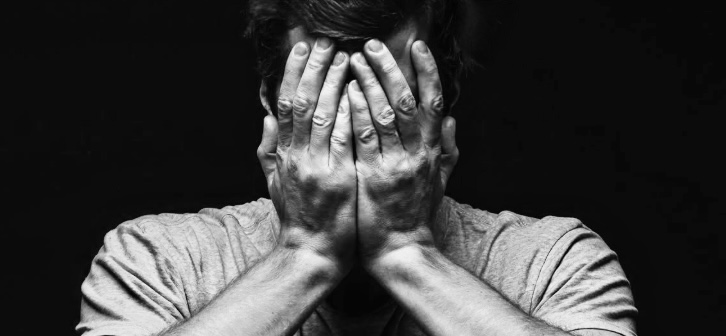Words by Susanne Levitt-Fusco
Photo by Scott Jenkins
The Cancel culture…
Fueled by social media, boredom and a sense of vengeance and fully accepted by the majority of the country, Cancel Culture is alive and well in the US. Centuries ago, they called them witch hunts. Today, we call it accountability. The tools have changed — the fire now burns on screens, not stakes — but the impulse is the same: to destroy someone publicly in the name of moral purity. And in that destruction, society convinces itself that it is good, righteous, and safe. But it isn’t. Because when accusations replace evidence, and outrage replaces understanding, no one is safe.
Christina never thought a tweet could end her life. It wasn’t even her tweet, not really. Someone had dug up a ten-year-old joke — tasteless, yes, but posted when she was a dumb nineteen-year-old trying to be funny online. When it resurfaced, it was like gasoline meeting a match. By morning, her name trended on social.
She woke up to find her inbox flooded. Half were insults; the other half were death threats. Her employer, a manufacturing company proud of its “zero tolerance policy,” fired her within hours — no hearing, no conversation, no second chances.
Christina tried to explain. She apologized publicly, sincerely. She talked about how she had grown, how she mentored youth in her community now, how she believed people could change. All of the obligatory things one must do or at least say they doing when cancelled. But in the court of public opinion, the verdict had already been rendered.
People from high school came out of the woodwork to further add fuel by posting about her “problematic past.” Friends distanced themselves. Even those who privately sympathized with her stayed silent — afraid that defending her would make them the next target.
Within a week, Christina’s digital presence was wiped out, her reputation ruined, her credibility lost and still, no one could point to a single crime — only a mistake, amplified by countless angry voices.
She sat alone in her apartment, scrolling through endless threads debating whether she “deserved what happened.” The strange thing was how gleeful people seemed. The mob needed someone to burn — not for justice, but for catharsis. It was an old ritual, dressed up in hashtags and retweets.
The same thing happened to actor Armie Hammer. A meteoric rise to fame and an even more meteoric fall. Unproven accusations led to the public court of opinion, who graciously and happily decided to convict him.
His reps, who loved him so much when he was making money for them, turned their backs on him. The studios, friends, fashion brands, and everyone who rode the money train decided to “distance” themselves from him. Instead of standing by him, helping him, believing in him, they chose the easiest path which was to turn away. The actors he once partied with, who stayed at his house and gladly showed up at events with him were nowhere to be seen. Of course this says a lot about people in the entertainment industry, the people who you “thought” had your back, simply don’t.
It was the same situation when the #metoo movement took flight. Who can we accuse, who can we punish and whose life can we ruin. It was prime time to single out men and publicly accuse them of inappropriate behavior. Once again accusation equals guilt. Even if the accusations were proven untrue, the damage was already done. It wasn’t just actors, it was politicians, sports figures, photographers, artists etc. Any man was fair game. Yet not one man or woman publicly spoke up about the witch hunt. Not one actor defended his fellow actor, not one athlete defended his fellow athlete and so on. They did what was expected of them, to “distance themselves” and “cancel” that person. Close the wound, hide the scar.
Another classic example is Coldplay’s show at Gillette Stadium in Foxborough, Massachusetts, a moment intended for light fun turned into something much more serious. The stadium’s big-screen “kiss cam” panned to a pair in the crowd: a man and a woman (Andy Byron and Kristin Cabot) sitting close together. The camera lingered, the crowd cheered. But then things changed. The man ducked behind the railing; the woman turned her face, covered it with her hands. On stage, the band’s frontman, Chris Martin, quipped to the audience: “Either they’re having an affair or they’re just very shy.” Within hours, the clip had gone viral. Social-media users and tabloid outlets identified. Both were reportedly married to other people. The fact they were at a major event together, in their professional relationship (CEO & HR head), and caught making awkward attempts to hide, turned the moment into something far more than just “caught on camera.”
The moment exploded beyond fandom or concert culture—it impacted professions, reputations and public perception: Losing their jobs, public humiliation, countless memes and beyond negative press on both. This not only affected them, it affected their families, innocent children also paid the price.
In modern America, the accusation is the conviction. The mob does not wait for evidence. It only needs outrage — pure, unquestioned, unfiltered outrage. And when the outrage spreads fast enough, it becomes indistinguishable from truth.
Because when accusations replace evidence, and outrage replaces understanding, no one is safe.
Not Christina, Not Armie, Not Andy, Not Kristin.
Not the next person.
Not the people doing the canceling. Someday, the crowd will turn on them, too — and when it does, it will be just as merciless.

